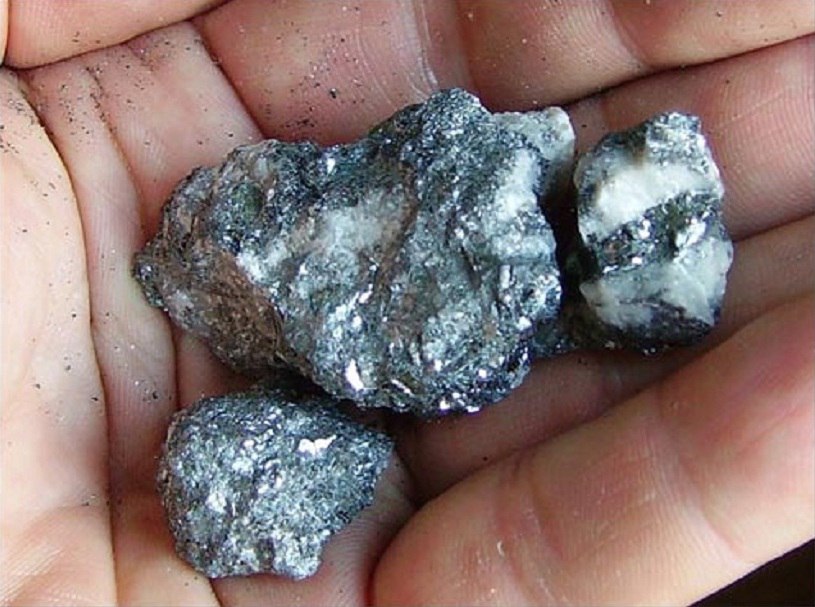The Ministry of Industry and New Technologies (MoINT) has clarified Tajikistan’s proven reserves of antimony.
An official source at a MoINT says the country’s proven antimony reserves are estimated at about 600,000 tons.
“Continued exploration may open up new deposits of antimony in Tajikistan,” the source added.
According to data on the content of antimony in the earth’s crust provided by Tajikistan’s MoINT, each kilogram of ore contains only 0.2 milligrams of antimony.
Meanwhile, according to the US Geological Service (USGS), estimates of the abundance of antimony in the earth's crust range from 0.2 to 0.5 parts per million. Antimony is chalcophile, occurring with sulfur and the heavy metals, lead, copper, and silver. Over a hundred minerals of antimony are found in nature.
According to the MoINT, the biggest antimony reserves are concentrated at Jizhikrut and Konchok deposits in Ayni district, Sughd province.
The Main Geology Directorate under the Government of Tajikistan notes that ores of these deposits contain more than 15 percent of this semi-metal.
Based on these stocks, the Anzob ore refinery has operated since the late 1940s.
According to data from the MoINT, Anzob Limited Liability Company (LLC) is now engaged in extracting antimony in Ayni district. This company was established as the Tajikistan-U.S. joint venture in 2005. Tajikistan owned 51 percent of the shares and the United States’ Comsup Commodities Inc. assumed the 49% ownership interest in this enterprise. In September 2006, Comsup Commodities Inc. repurchased Tajikistan’s share in the company, becoming the only owner of “Anzob” LLC.
The company later built a plant on processing ores and producing a mercury-antimony concentrate there.
In a report released at a news conference in Dushanbe, the Main Geology Directorate head Ilhomjon Oimuhammadzoda revealed on February 1 that there are eleven antimony deposits in Tajikistan and nine of them are located in Zarafshon and Hisor valleys.
According to the Main Geology Directorate, Tajikistan’s antimony deposits are stated to be the largest in the Commonwealth of Independent States (CIS) region and Tajikistan is in the second place globally in terms of the proven antimony reserves.
Concentrates of mercury-antimony ores of Tajikistan are processed in other countries. They were processed in Kyrgyzstan one time, but after unilateral closure of the border by Kyrgyzstan in late April 2021, Tajikistan’s concentrates of mercury-antimony ores have been processed in China.
In his address to a joint meeting of both chambers of parliament, President Emomali Rahmon noted on December 23 last year that “the Government is mandated to pay special attention to the extraction and processing of non-ferrous metals from identified deposits, including antimony, tungsten, nickel and other metals, and to develop and implement a program on their full processing in the country.”
An article by Bryant Harris, published in DefenseNews on June 8 last year, in particular, notes that antimony is a critical mineral that is vital to producing ammunition.
The article says the House Armed Services Committee “took its first stab at addressing China’s grip on the antimony supply chain in draft legislation” it released on June 8.
A report accompanying the bill reportedly notes that the committee is concerned over recent geopolitical dynamics with Russia and China and how that could accelerate supply chain disruptions, particularly with antimony.
China is the largest producer of mined and refined antimony and a major source of imports for the United States, the report says, noting that China is “losing market share with Russia, the world’s second-ranked producer,” with Tajikistan gaining ground in the global market as the world’s third-largest supplier of antimony.
The U.S. Defense Department reportedly submitted its own legislative proposal to Congress in May last year, asking lawmakers to authorize US$253.5 million in the defense authorization bill to procure additional minerals for the stockpile.
A lead-antimony alloy is also used in batteries. Other uses of antimony alloys include type metal (in printing presses) and cable sheathing. Antimony compounds are also used to make flame-retardant materials, paints, enamels, glass and pottery.




